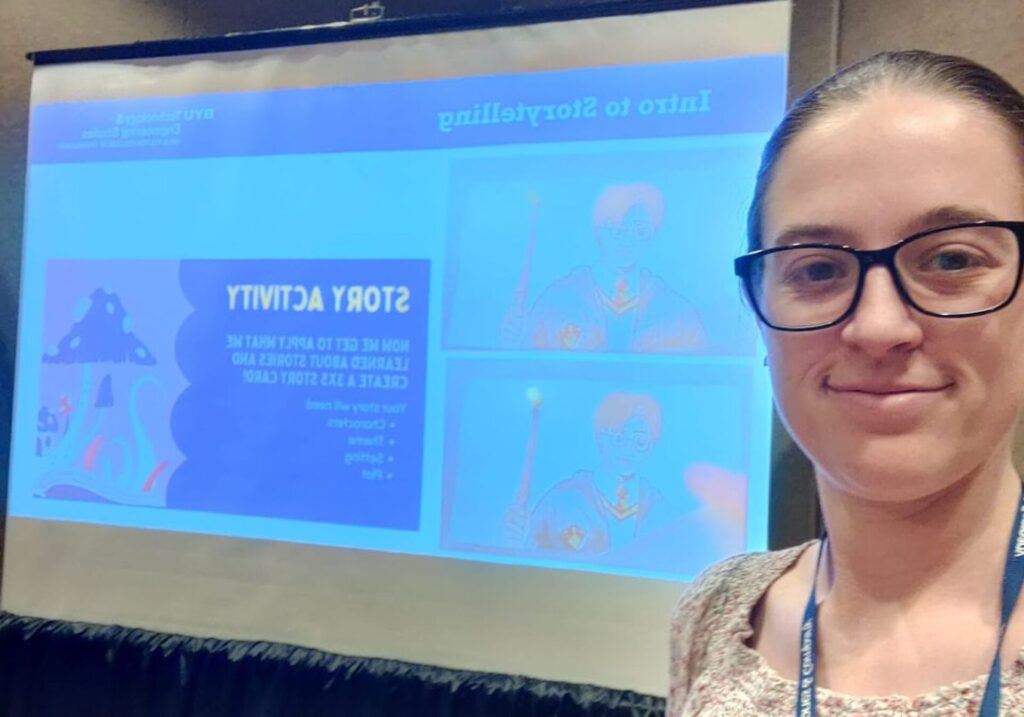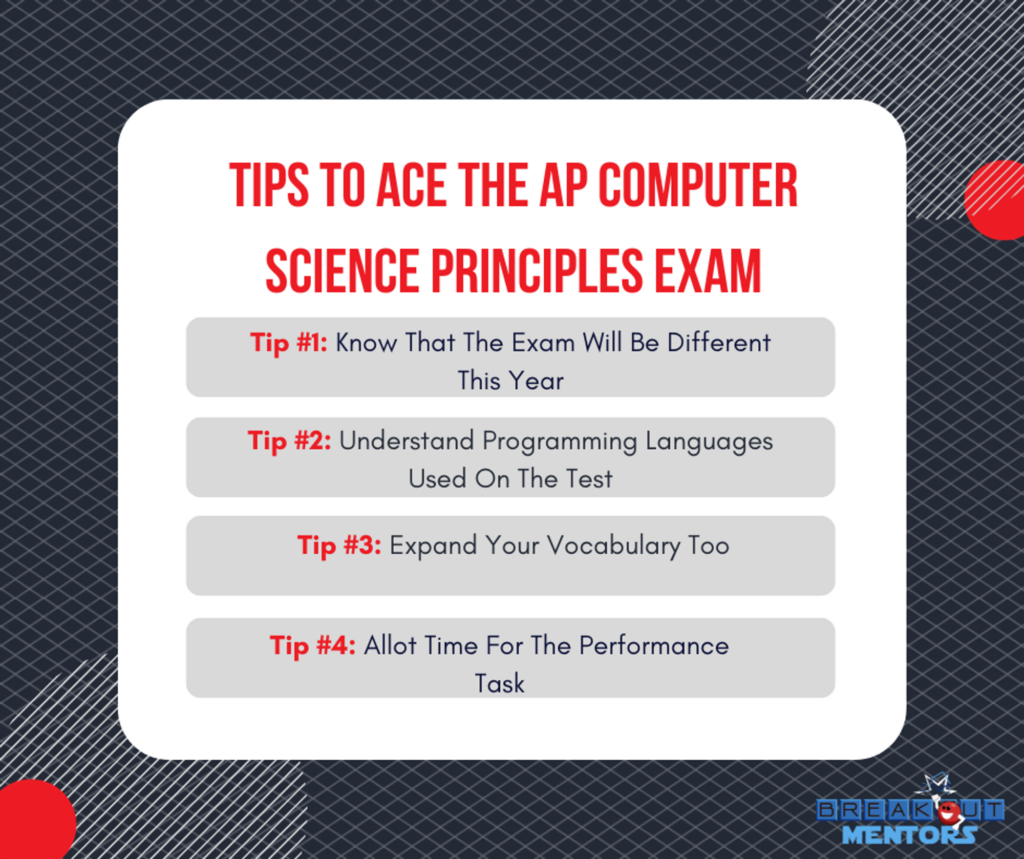
Are you considering taking the Advanced Placement (AP) Computer Science Principles course and wondering how to do well on the exam? Or maybe even consider self-studying for it on your own? If so, you have come to the right place!
The AP CS Principles exam is in early May each year, but be careful to note that your portfolio is due two weeks earlier in late April. In addition to the portfolio, the exam will include two sections. Section 1 will be 70 multiple-choice questions, and Section 2 will be 4 free-response analysis questions. The addition of Section 2 is new, but the College Board is releasing more info as we go. Here, we’ll discuss some other things you need to know.
Beware this test is changing for the 2023-2024 exam, and it is essential to realize that the following information is new. So if you are researching the exam elsewhere, make sure that resource has the updated information.!
Tips For AP Computer Science Principles (Based on Real Experience)

While my transcripts don’t say that I’ve taken AP Computer Science Principles, as a teacher grader of the exam for a long time, I am one of a small number of adults who have taken the exam to judge the difficulty. They even made us take it in half the time. I only missed one question, so close to a perfect score!
Tip #1: Know That The Exam Will Be Different This Year
The test is different this year. That means no one really knows what to expect in Section 2. However, we do have a list of the types of things that could appear there. You can also check out the questions from the performance tasks from previous years to see an idea of what they might look like.
Tip #2: Understand Programming Languages Used On The Test
You are allowed to learn any programming language you want (or your teacher forced you to learn) during the year. However, you still need to understand the language that they use on the test. You will be provided a code reference that lists all of the codes on the test, but it is 8 pages so you want to be familiar with it so you don’t have to spend time finding things.
- For the most part, this language will probably be very similar to whatever you learned in class. (Unless you only learned HTML and CSS – talk to us if that’s you.) However, there are some specific differences to be on the lookout for.
- In English, we start counting at 1. In coding, we start counting at 0 unless you are on the AP test where indices for lists start counting at 1. No, I do not know why they did that!
- Most languages have a while loop that runs as long as the condition is true, but on the test, you will have a Repeat Until loop that stops as soon as the condition is true.
- In a lot of languages, you have to learn that = is a statement (assignment) and == is a question (boolean operator), but on the AP test, = is replaced with a ← (left arrow), and == is replaced with =. If you survived that sentence, congratulations. If you did not, and it’s still months until the test, be patient. If the test is next week and you still don’t get it, ask for help.
Tip #3: Expand Your Vocabulary Too
While this test has less coding on it than AP CS A, it is more vocabulary-heavy. I could spend the next 10 pages defining vocab words that you need to know but here are a few of the harder ones:
- Purpose vs Function
- Binary vs Linear search
- Symmetric vs Public Key Encryption
- Lossy vs Lossless Encryption
- Reasonable Time
- Decidable vs Undecidable
- Analog vs Digital
As you study vocab, take notes on the things you don’t know so you can go back and study them.
Tip #4: Allot Time For The Performance Task
Even though the performance task is different this year, it is still extremely important. You will not be able to do well on Section 2 unless you take time to complete the Performance task well.
- Have a plan. Before you start writing code for your project, make sure that your idea has a way to include all of the things you need in it. Sadly even if you can create the project without it, you will still lose points. Here is a short version of the checklist the college board gives you:
- List/Array (or another Collection Type but 99% of people use a list/array)
- Function/Method/Procedure with:
- User Input
- Output
- Parameter
- Loop (For/While/Recursion)
- Conditional (If/Else)
- Stay organized. Especially since you will need to submit your project well before the test day, you will want an easy way to look back on what you have done. The Personalized Project Reference will help you but feel free to take other notes to help you.
- Be careful about not cheating but use the resources you have. You are allowed to get feedback from your peers/classmates on your code. You are allowed to use Google to help you with your code. Just make sure that you understand what the code is doing since you will need to explain it on the exam.
General AP Exam Prep
If you have already taken an AP test before, you can skip this section. If not, here are a couple more tips that might help:
- Make a study schedule. You may be taking several AP exams that you need to balance, or just used to procrastinating. AP exams are large enough that you can’t cram the day before. The AP CS Principles exam might require less study time than some of your others.
- Practice tests early for an indication of where you are and what you need to focus on. Examine the problems you missed and deeply understand why you missed them. This website is one great source of multiple choice practice questions with answers: AP® Computer Science Principles
Key Takeaway
AP Computer Science Principles is full of important information to help you understand computing and technology. It will provide the knowledge everyone needs to know to be safe and successful in the modern era. So you have made a great decision to study it, now you should put in the effort to do well on the AP exam!
Whether you’re studying it independently or in a school setting, guidance can greatly enhance your learning experience. Hopefully this article was a good start, but don’t hesitate to seek out a mentor to help you on your journey. We work with a limited number of students, whether the summer before entering the class to make sure they are ready, or to prepare for the exam, so please contact us if you are interested.